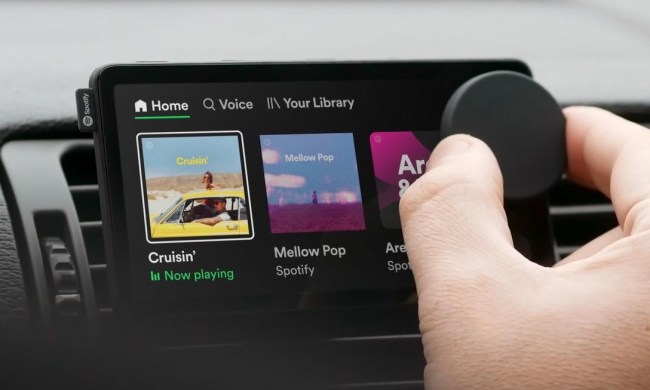
For all our phobias of snakes, the number 13, or flying, one of the most obvious and constant threats to our safety resides in an activity that many of us engage in on a pretty regular basis: driving. While everyone seems to have an inflated sense of confidence when it comes to their own driving skills, the data says otherwise. In fact, a 2011 car insurance industry estimate suggested that the average driver would be involved in three to four accidents over the course of their lifetimes. And now, four years later, the number of distractions available to us have grown exponentially, and so too, perhaps, has our risk for accidents. According to recent research from Mobileye, the developers of autonomous driving technology who supply the tech that supports Tesla, BMW, Audi, and Nissan, one in 10 Americans has been hit or almost hit by a car since May.
While it’s already been proven (again and again and again) that driverless cars are really, really safe, whether or not we want to admit that we’re ready to share our lives with phantom drivers has yet to be determined. But according to this latest survey, we may want to reconsider our skepticism. Conducted by YouGov, the study involved 1,078 adults who answered a series of online questions about their own experiences with cars and how they perceived the future of the auto industry.
Sixteen percent of respondents said they had been hit or almost hit at least once in the past six months while walking, and 21 percent of cyclists who had biked in the last month reported being hit or nearly hit by a driver in the last six months. Public transportation fared no better, with 18 percent of respondents noting they’d been in a public or car service vehicle (taxi, city bus, Uber, airport shuttle, etc.) that was involved in an accident.
Millennials seem particularly at risk for accidents, with one in six between the ages of 18 and 34 noting they’d been hit or almost hit by a vehicle while walking in the past six months.
“Whether it’s a bus driver trying to navigate a crowded intersection or a car service trying to find the right gate at the airport, there are so many potential ways for a driver to be distracted that are beyond their control,” Yonah Lloyd, CCO and SVP of business development at Mobileye commented. And what can be done? Introduce driverless cars, Mobileye suggests.
The company is responsible for the technology that helps keep driverless cars out of accidents, offering “detailed interpretations of the visual field in order to anticipate possible collisions with other vehicles, pedestrians, cyclists, animals, debris, and other obstacles.” Unfortunately, these are things that humans often cannot (or simply do not) do. And as it turns out, there may be new space in Americans’ hearts for these autonomous vehicles.
According to Mobileye and YouGov’s survey, 31 percent of respondents said they’d feel safer knowing driverless cars were on the road, and that proportion increased signicantly among cyclists, with nearly half supporting the notion of driverless cars. And millennials, who have grown up in the digital age and are perhaps least perturbed by the notion of cars driving themselves, are also warming to the idea. Thirty-eight percent of them said they’d feel safer with driverless cars.
“Mobileye’s research showed Americans are incredibly open to embracing new technologies if it can create a safer driving experience for everyone,” added Lloyd. “The auto industry is finally shifting gears away from its traditional focus on injury mitigation, such as seatbelts and airbags, to include complete accident prevention to further protect Americans in the years to come.”
And it looks like we’re going to need all the protection we can get.


